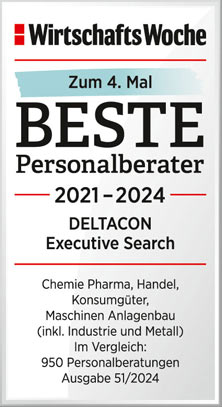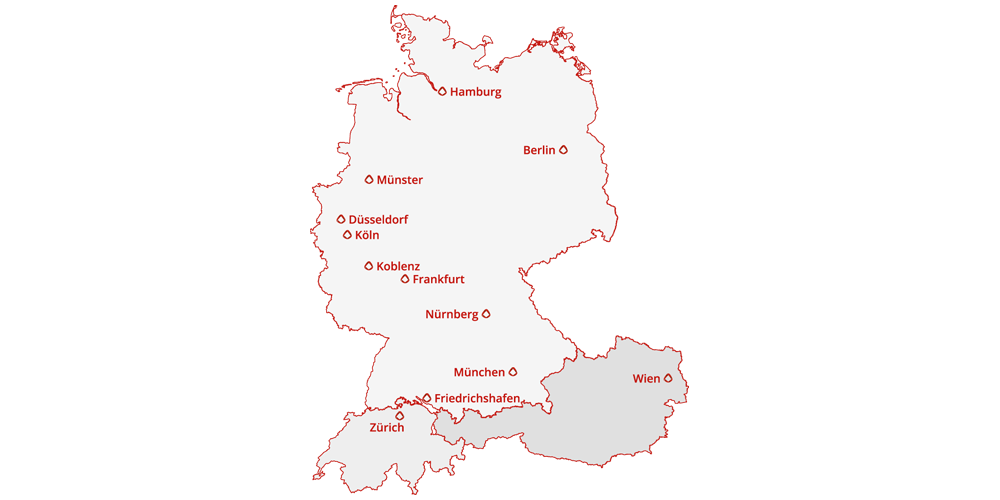Actively promote employee resilience!
Employees are a company’s most important resource and often a decisive competitive advantage. The success of companies falls and stands with their performance. Increasing pressure to perform, deadlines that must be met, and increased demands have played a major role in the steady rise in mental illnesses in recent years. If employees are absent due to excessive demands, this often has long-term consequences for the employer and a negative impact on both employee and customer satisfaction and thus potentially also on the company’s success. However, this does not have to happen. By purposefully developing a values-based corporate culture, starting with a few simple measures, managers can help their employees develop better resilience and thus not only reduce the risk of work-related absenteeism, but also bring about a lasting change in the corporate culture. What resilience means and how it can be strengthened in the working world will be explained in this article.

Resilience in the world of work – what does it actually mean?
We live in a fast-paced society where challenges in the working world are the order of the day. Many employees have to deal with long working hours, urgent deadlines and considerable potential for conflict. Add to this the fact that the boundaries between work and private life are becoming increasingly blurred – a development that, without a suitable strategy, can lead to excessive demands and even burnout.
What does resilience actually mean?
In other words, the term resilience means something like psychological strength. Resilient people have the ability to survive situations in which they are exposed to increased stress and have to deal with challenges without their psyche suffering any damage. Resilient employees are also characterized by a high level of resilience, stamina and resistance. Resilience in this context, however, does not mean „working against“ things and simply enduring them, but rather finding ways for oneself to deal with these situations. Adaptation, acceptance of situations for which one is neither responsible nor able to change, or even empathy are just a few keywords here.
What measures can companies take to promote employee resilience?
For most people, overload arises in their professional lives, even though it can also arise or be nurtured in their private lives. Through various measures, companies can help ensure that their employees do not reach their limits so quickly and can also withstand stressful situations.
Consider your employees as individual personalities
In every company, there are situations that can throw employees off track. The reasons are as varied as the personalities themselves. During the pandemic, these included short-time work, associated existential fear, general uncertainty, increasing pressure to perform, and changes in company culture. While there are employees who don’t let such challenges get to them at all, others can be completely thrown off course. One’s own personality is a decisive factor in determining how high the risk is.
It is particularly important for companies to be aware of the individuality of their employees and to accept them as they are, with all their strengths and weaknesses. The more companies express this fact, the better resilience is automatically promoted.
Conduct regular employee appraisals
In addition to a practiced, open culture of error, regular employee discussions are the be-all and end-all of a pleasant company culture. Through appraisal interviews, you can also find out what challenges and problems your workforce is currently facing. It’s not just about job challenges. Successful employers and companies with a low turnover rate also have an open ear and understanding for the family and private concerns of their employees.
Why is this point of particular importance? If companies conduct regular employee appraisals and do not focus exclusively on the challenges currently facing the company, employees feel that they are part of the family and are valued. They automatically feel that not only their performance is in demand, but that it is also about their personality, with all the worries and problems they have to deal with in life. This creates trust and ensures that resilience increases and employees are better able to deal with challenges.
On the other hand, employers learn firsthand where the shoe pinches, where there are difficulties and what assistance employees need to feel comfortable at work.
Strengthen the self-confidence of your employees
There are also big differences when it comes to self-confidence. While some employees struggle with a lack of self-esteem, others are brimming with self-confidence. Here, too, managers can take steps to boost the self-esteem of their workforce, for example by showing appreciation and promoting personal strengths. An open culture of mistakes can also help raise self-esteem. In this way, employees realize that it is not a disaster if mistakes happen, but that it helps them develop further – because only through mistakes do you learn and can you develop further.
“There is nothing you can do wrong, that I can´t help fix!”
Inspiring empowerment… from: unknown
As a manager, you are acting correctly here if you emphasize the strengths. Many employees like to take advantage of training opportunities to make themselves fit for future tasks. Trying to eliminate weaknesses leads to mediocre results at best.
Live an open corporate culture
The atmosphere in a company plays a very important role. The more empathetic and sensitive the manager is to employees, the more resilient they will be able to handle stressful situations. Signal to your employees that they can always approach you if something is bothering them. Also, regularly ask if support is needed and if any problems arise. If so, address this aspect together with your employees.
Stressful effects can come not only from increasing demands, but also from a poor working atmosphere. If the atmosphere is not right, even the most efficient employees can reach their limits. Here it is important that managers pay attention to potential conflicts. If these are noticeable, you should not hesitate and react in time. Conduct joint discussions, or encourage them, in an attempt to resolve the causes of the conflict.
Mindfulness and stress management
Many companies have already anchored this aspect in their corporate philosophy. If employees are permanently exposed to increased stress, it may already be too late. For this reason, it is of elementary importance to invest in various programs that strengthen the mental immune system of employees. By offering various courses, such as mindfulness training, sports courses, or others, the appreciation of employees can potentially be raised to another level. By doing so, companies signal to employees the high value they place on the health of their employees.
Finding the right employees, inspiring them and winning them over for your company – that is our contribution to your company’s success!
So what skills does a manager need so that the aspects mentioned above can also be enforced? In addition to empathy, other social skills such as the ability to work in a team, solution orientation and the ability to take criticism are of great importance. These human skills are of enormous importance if employers want to ensure that the resilience of employees is further developed.
It is precisely these crucial qualities of candidates and their optimal fit to the requirements and expectations of the company that DELTACON tests using suitable procedures that have proven themselves over the years.
In this way, DELTACON guarantees the best possible fit between the company’s expectations in terms of culture, employee satisfaction, but also the decisive economic corporate goals.
Contact us and convince yourself!
Von Thomas Wild
Personalberater für Maschinenbau, Anlagenbau und Industriearmaturen
Thomas Wild ist Managing Director der DELTACON Koblenz GmbH Executive Search und verantwortet mit seinem Team die Branchen Maschinenbau, Anlagenbau und Industriearmaturen. Er verfügt über mehr als 20 Jahre operative Managementerfahrung als Managing Director und Vertriebsleiter in seinen Branchen.






